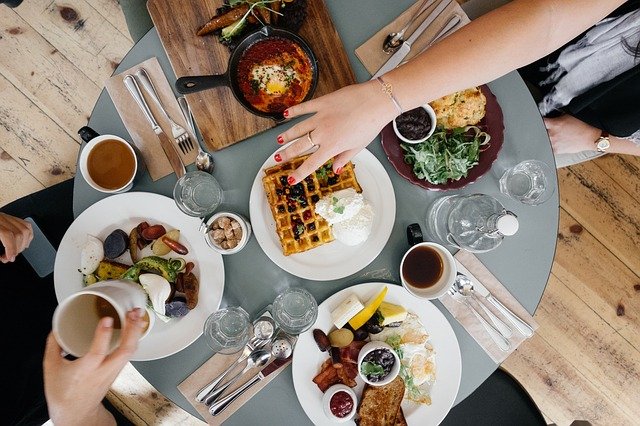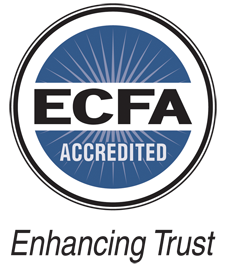At the Table

Volunteers answer the call, the questions of a Muslim student.
Sometimes difficult conversations happen when people are discussing a religious or cultural topic, but they don't share the same beliefs. Those moments can feel uncomfortable and tense, and may quickly devolve into debate. But what happens when the conversation is taken from the debate desk, to the dinner table?
*Eria, an MD research assistant returning to the U.S. in search of a residency, was surprised to see a man and woman holding a sign with her name as she exited the baggage claim. She had signed up for IFI’s Temporary Housing program because the apartment she had leased was delayed in availability. Still, she wasn’t expecting to be picked up.
“She had taken an Uber the last time she was here,” says Jim Drake*, the IFI volunteer who hosted Eria. “It was funny, she actually walked right past us at first.”
After getting Eria se ttled at home, Jim and his wife invited her to shop with them for dinner that night. They intended to cook her Chicken Curry, and went to two different shops to buy the halal meat for the dish. That night, they cooked two meals, one with each brand of meat. Jim invited Eria to judge which dish was better. That was the first of many meals they would prepare and share together.
ttled at home, Jim and his wife invited her to shop with them for dinner that night. They intended to cook her Chicken Curry, and went to two different shops to buy the halal meat for the dish. That night, they cooked two meals, one with each brand of meat. Jim invited Eria to judge which dish was better. That was the first of many meals they would prepare and share together.
As they lived together, Jim began to notice many things about Eria, a practicing Muslim whose parents had warned her to only live and interact with other Muslims.
“She was very disciplined to pray on time, but also had very liberal views on life. She wanted to explore and understand what others believed.”
She also loved tea, which helped to calm her as she adjusted to the time difference in the States. To help, Jim prepared tea for her everyday. One day, he offered her some cardamom for her tea, but she refused. At first Jim thought nothing of it. Later, he asked her why she didn’t like cardamom (a common spice in her country) in her tea. “I thought it was a pork product,” she said as they laughed.
As she continued her stay with Jim and his wife, Eria became more impressed and comfortable with the hospitality and friendship extended to her, despite the reservations of her parents, who were contacting her from back home. “I would choose them,” she told her mom and dad, even going as far to claim that her Christian hosts acted how she thought Muslims should act. 
So the hosting continued, and the friendship between Eria and the Drakes developed. One evening, after dinner, Eria asked the Drakes to sit with her: she had questions.
“She wanted to learn about what we believed as Christians and why we believed it. We were happy to share.”
The questions ranged over a variety of topics, including the Christian perspective of Prophet Muhammed and Quran, and the Bible’s message. This conversation, which lasted until midnight, could have easily turned into a theological dispute, an epic battle of argumentative logic and passionate rebuttals. But this was different, because the table had been set by friends, not enemies.
“Muslim people tend to shut down quickly and become enrage because they feel threatened by Christians beliefs. We wanted her to know that we weren’t rejecting her, but bringing her another perspective.”
Look! I stand at the door and knock. If you hear my voice and open the door, I will come in, and we will share a meal together as friends. Revelation 3:20
Soon after that conversation, Eria found a more permanent residence and her stay with the Drakes ended. However, her relationship with them and IFI did not. She attended the IFI welcome Picnic and met Jay, a campus minister who offered to drive her and two friends home as the event was ending. Jay and Eria later met for breakfast, where Eria described how she felt safe and cared for while staying with the Drakes.
The conversation again shifted to the topic of faith, with Jay expressing curiosity about Eria’s experience of practicing Islam in the States. “I’m always curious about how that works in a new environment; I also wanted to gauge how devoted she was. She is very thoughtful and comparative, and ultimately wants unity between people.”
Eria also disclosed her interest in religions with holy books, and committed to attending a Bible Discussion to learn more about Christian beliefs.
So what happens when the conversation is taken from the debate desk, to the dinner table? What happens when someone’s voice is heard and they are invited inside to sit and share as friends?
Simple: the potential for remarkable change.
*Names of the student and volunteer are changed for privacy and safety



